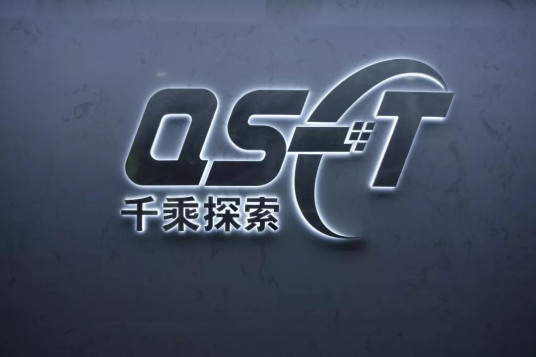Former commander to build China's largest private satellite
In December 2018, the Long March II carrier rocket was successfully launched in Jiuquan carrying 12 satellites, ten of which are small and micro satellites from private companies.
In recent years, China's satellite application field has continued to expand, playing an important role in the fields of remote sensing, communications, meteorology and navigation.
With the liberalization of national policies, new forces have emerged in the commercial aerospace field, gaining wide attention from social capital. Founded in 2017, Beijing Qiancheng Exploration Technology (hereinafter referred to as "Uni Explore") is one of them.
Building China's largest private satellite

Before long, the first satellite independently developed by Miao Jianquan's team will fly into the the sky, less than two years after the establishment of Uni Explore.
As the founder and CEO of Uni Explore, Miao Jianquan describes the satellite as "the largest satellite independently developed by a startup after China opened up the commercial aerospace market. It is also the first satellite in the commercial aerospace field that can provide both remote sensing data services and narrowband communication services."
“We built our own satellite ground station as well as a command and control center. The whole satellite operation is autonomously controllable." Miao added.
The quick speed of "satellite building" is not accidental. It has a lot to do with the company's accumulation of a large number of aerospace talents.
More than 80 percent of the technicians that accompanied Miao Jianquan to start businesses have the title of senior engineer or above. All of them are from the "national team", with the average age of around 35 years old.
The team's core staff all possess the qualifications of director of the designers, over eight years of project experience, and have participated in High resolution satellites, Fengyun satellites, Beidou satellites, Long March rockets and other national aerospace projects.
With the introduction of the military-civilian integration policy in 2014 and the release of the "2016 China Aerospace" white paper, private capital has been encouraged to enter the aerospace field to speed up the commercialization of space technologies.
As private enterprises actively participate in the aerospace industry, China's commercial aerospace market is expanding rapidly. Hundreds of small and micro satellites will be launched into orbit to provide data services over the next three years.
But Miao also warns that the industry "has its own problems such as high failure rate and huge demand for capital."
But unlike other private satellite companies that are still exploring business models, Miao is not worried about the company's profitability.
"Uni Explore is the only private satellite company that covers the core links of the development, operation and application of satellites. Our company has already had a number of clients in agriculture, forestry, land, urban management and military," Miao explained.
A former commander of national aerospace models

The business model of the Uni Explore can be summarized as "make, manage and use" satellites.
The company has obtained nearly 20 patents in developing satellites, and while it manages satellites to ensure their normal and efficient operation, clients can also directly control satellites to obtain their required data services.
In 2008, Miao Jianquan received a master's degree from Beijing University of Aeronautics and Astronautics. After graduation, he joined the China Aerospace Science and Technology Corporation, and served as the main person responsible for aerospace models.
In 2016, Miao completed the first flight of aerospace model 01 at the launching site as the commander.
China's national aerospace system has brought excellent quality control systems and unparalleled reliability.
But the comprehensive requirements for cost, schedule, quality and capability are very high in commercialization, to which the methods of the "national team" cannot be fully adapted. Thus projects often use proven methods and techniques, instead of the most advanced.
"In national institutions, every decision requires different experts to make repeated and rigorous argumentation and decision-making to ensure the safety. Although complicated in implementation, it is very effective in ensuring high quality.
"For private companies, it is necessary to find the optimal balance of working methods under the premise of ensuring quality," Miao said.
In addition to Uni Explore, cooperation with the "national team" is also a common practice of international commercial space start-up companies. Central enterprises, such as aerospace science and technology, do not stand in direct competition with private space companies. Although in some areas, such as rocket launches, it is necessary to rely on the state-owned system, in other respects the private economy is running faster and closer to the market.
In addition to satellite remote sensing data and narrowband communication data services, the company has also developed other ancillary businesses, such as microsatellite development and on-orbit delivery for foreign governments, space payload verification of advanced technologies, commercial measurement and control.
A journey to the stars

Uni Explore has already received three rounds of financing and Miao has a clear plan for the future.
"Three satellites will be networked in three years, and the networking of 20 satellites will be completed in five years. The types and indicators of remote sensing data will cover 80 percent of customer demand, and the narrowband communication rate will reach 100kps."
Smooth financing, stable customers, high-level teams, as well as innovative and effective data service products, have instilled enormous confidence in Miaojianquan.
